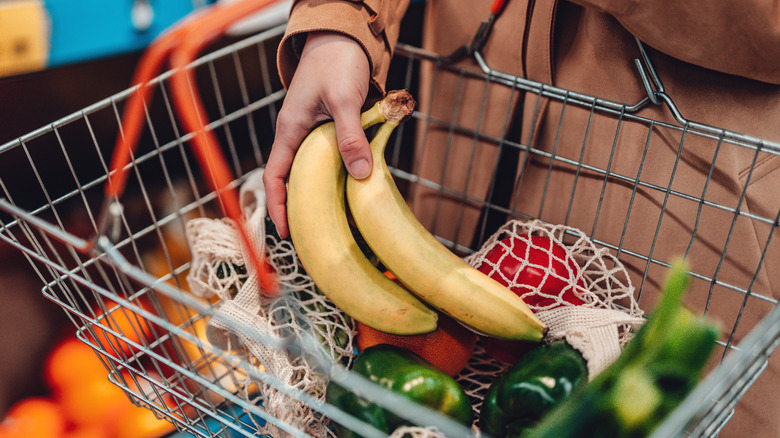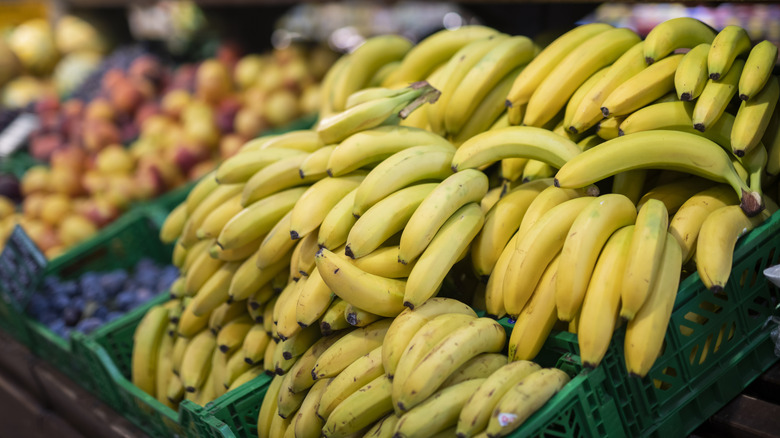A Banana Shortage Is Likely Coming
As reported by FOX 10, an impending strike involving East Coast and Gulf Coast dock workers will likely affect the U.S.'s banana supply (check out our previous coverage of the anticipated banana shortage). The strike is slated to take place October 1 and has resulted from wage-increase disputes, as well as disagreements over contract language that restricts automation, a major concern for the 45,000 workers involved. In addition to bananas and other types of fruit, the strike is also expected to impact automotive supply chains, and according to FOX, experts estimate that a week of striking could result in the loss of $7.5 billion.
Consumption of bananas remains strong and steady in the U.S. — Statista estimates that the average American eats over 26 pounds of the fruit annually. It's also true that bananas take a long and winding road to get to your kitchen, and the majority of bananas that enter this country do so through East Coast and Gulf Coast ports. This could have dire consequences for the fruit, as well as for Americans who consume bananas regularly. According to produce importer Peter Kopke Sr., who spoke to The Orange County Register, "Any fruit that arrives after Oct. 1 will be condemned to the trash can."
Alternative shipping routes in short supply for bananas
While there are many types of bananas and ways to use them, the Cavendish variety is the most ubiquitous in America. Based on the popularity of these bananas, not to mention the financial losses likely to result from the looming shortage, one would think that finding an alternative route for the fruit's shipment would be top priority. Unfortunately, there are no real viable options.
Container News reported that some of the goods potentially impacted by the strike could be diverted elsewhere, but bananas are unlikely to be included. As explained by Jason Miller, a supply chain professor with Michigan State University, "There is zero chance of shifting all these [bananas] through the West Coast." The issue has much to do with the dollar value of bananas, which means that flying the fruit into a West Coast facility could result in a loss of money. Shipping the fruit via boat and refrigerated trucks is more economical, stated Miller, which is why the East Coast and Gulf Coast ports are so crucial. Here's hoping that tasty and nutritious bananas are not one of the many items that might disappear from the grocery store.

